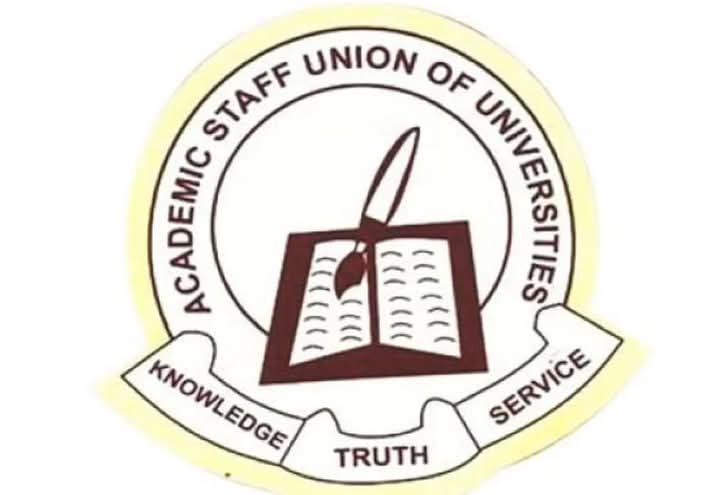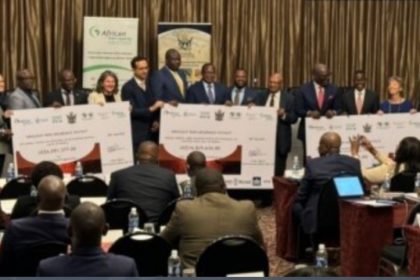Abuja, Nigeria— Nigeria’s public universities may face another shutdown as the Academic Staff Union of Universities (ASUU) raises alarms over the Federal Government’s failure to honor the 2009 Needs Assessment agreement. The agreement, designed to provide N220 billion annually for revitalizing Nigeria’s public universities, remains unfulfilled, leaving critical infrastructure projects in limbo.
A senior ASUU official, who spoke on condition of anonymity, told Lens AfricaTV that the union is on the brink of calling for industrial action should the government refuse to release funds for essential projects. The official disclosed that ASUU’s leadership would deliberate the next steps during its forthcoming National Executive Council (NEC) meeting.
“This government has yet to demonstrate any serious commitment to implementing the 2009 Needs Assessment Programme, which was designed to address the infrastructural decay crippling Nigerian universities. If no decisive action is taken soon, we may have no choice but to act in the interest of the education system,” the source revealed.
The Needs Assessment Programme was established following extensive negotiations between ASUU and the Federal Government. Its goal was to rehabilitate decaying university infrastructure, provide modern teaching equipment, and improve academic conditions. However, the agreement, renewed in 2014, has faced repeated delays, contributing to prolonged industrial actions that have disrupted Nigeria’s academic calendar.
Dr. Tunde Olagunjembi, a senior research fellow at the Institute of Project Management in Jos and a university lecturer, urged President Bola Tinubu to prioritize the funding of the Needs Assessment Programme. Speaking exclusively to Lens AfricaTV, Olagunjembi described the scheme as a “game-changer” for Nigerian tertiary education, warning that neglecting it could trigger another wave of strikes.
“The president must understand that the sacrifices made by ASUU members to allow this administration a peaceful start will not continue indefinitely,” Olagunjembi said. “The Needs Assessment Programme was born out of necessity. If left abandoned, it will further erode the already fragile university system, causing untold harm to students and the nation’s educational future.”
Olagunjembi emphasized that public universities are operating under deplorable conditions, with aging infrastructure, overcrowded classrooms, and insufficient teaching tools. According to him, the lack of intervention funds has not only stifled progress but also fueled the “brain drain” crisis, with many Nigerian academics seeking opportunities abroad.
More than a year into the Tinubu-led government, critics argue that little progress has been made in implementing the Needs Assessment agreement. This, Olagunjembi contended, undermines the administration’s earlier promises to revamp the education sector.
“President Tinubu’s bold rhetoric on education reform must now translate into action. Funding the Needs Assessment projects is the first step to demonstrating real commitment. The clock is ticking,” he added.
The lecturer also called on the Minister of Education, Dr. Tunji Alausa, to address the issue of unfulfilled agreements and take immediate measures to avert another shutdown of academic activities. Olagunjembi stressed that reversing the brain drain and fostering a stable academic calendar must be central to the administration’s educational policy.
The consequences of prolonged strikes are well-documented. Students across Nigeria have faced extended academic delays, with many losing productive years to repeated industrial actions. In previous strikes, which sometimes spanned months, ASUU cited the Federal Government’s failure to meet agreements as the root cause.
The looming strike also raises concerns about the broader impact on Nigeria’s education sector. The country has witnessed declining global rankings for its universities, with experts blaming underfunding, poor infrastructure, and inadequate resources for teaching and research.
ASUU’s grievances extend beyond the Needs Assessment Programme. The union has also demanded the release of earned academic allowances, improved staff salary structures, and reforms to the pension scheme. Failure to meet these demands, experts warn, could exacerbate tensions between the government and university lecturers.
Dr. Olagunjembi argued that the current relative calm in the academic sector is unsustainable without decisive action. “What you see now is a temporary peace. If the government fails to fund these critical projects, we will inevitably face another crisis that will set our education sector back even further,” he said.
ASUU’s warning comes amid renewed calls for the government to prioritize education as a cornerstone of national development. Stakeholders argue that revitalizing public universities is essential for equipping Nigerian youth with the skills needed to compete globally and drive economic growth.
At the heart of ASUU’s demands is the acknowledgment that quality education cannot thrive without investment. The union’s previous industrial actions, while controversial, have underscored the urgent need for sustainable funding and long-term reform in Nigeria’s education sector.
The Federal Government’s failure to fulfill its promises under the 2009 agreement reflects broader challenges in governance and policy implementation. Despite numerous pledges, successive administrations have struggled to allocate consistent funding to public universities.
While the Tinubu administration has made overtures about education reform, critics say concrete steps are needed to avert a recurrence of past disruptions. For ASUU, the message is clear: time is running out, and the government must act swiftly to prevent another shutdown of Nigeria’s public universities.
As the NEC meeting approaches, the nation waits anxiously for ASUU’s decision. With the academic future of millions of students hanging in the balance, all eyes are on the Federal Government to honor its agreements and prioritize the education sector.
For now, the threat of another strike looms large, and stakeholders fear that without immediate intervention, Nigeria’s universities could be plunged into chaos.




